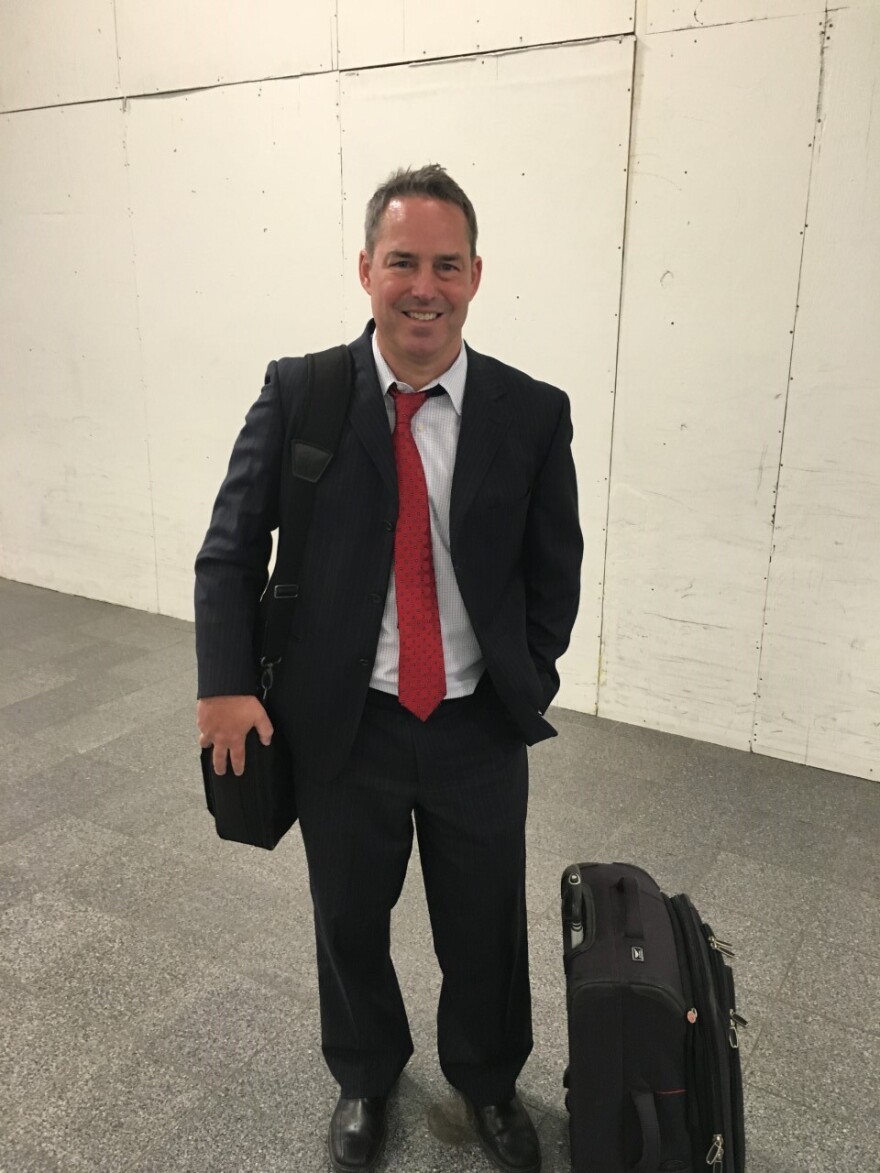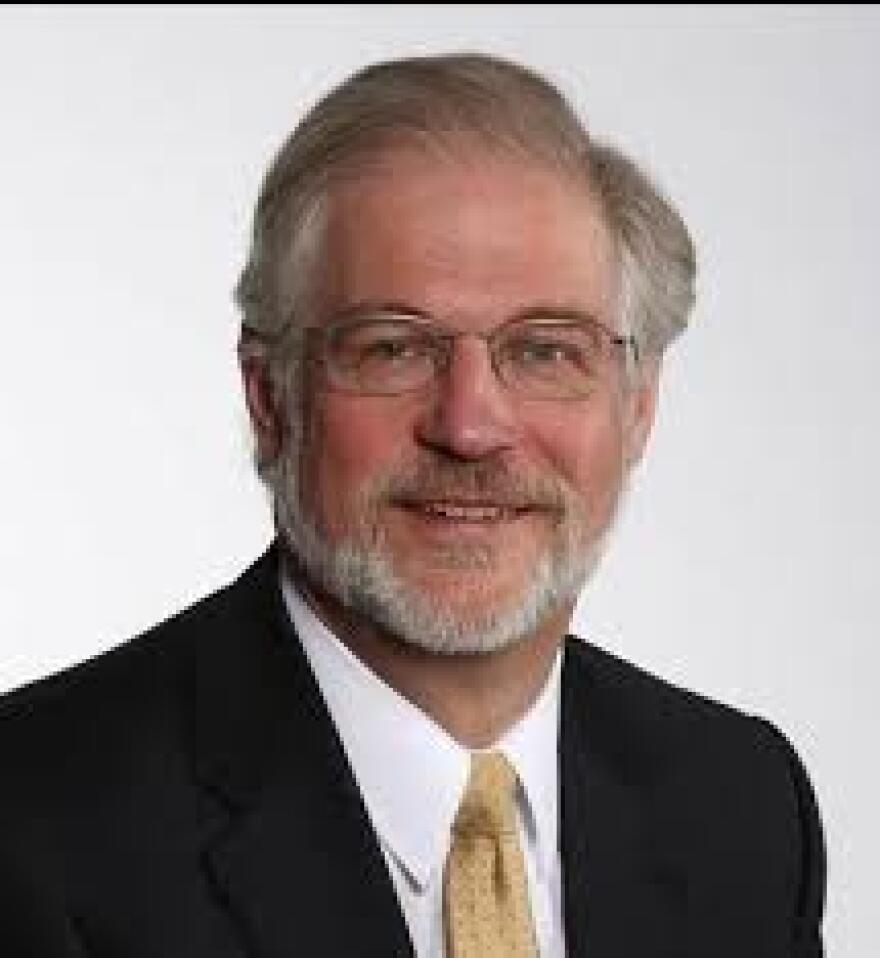
Concourse “D” at Cleveland Hopkins International Airport has sat empty since May of 2014 when United Airlines shut-down its hub. Since then, predictions that the de-hubbing would deal a devastating blow to the region have not come true. In part two of our series, Grounded, WKSU's Kevin Niedermier takes a look at the positive and negative changes that have materialized.
A jet takes off from Cleveland Hopkins International Airport, and depending where it’s going, it’s more likely now those passengers have to catch a connecting flight to reach their final destination. After losing its United Airlines hub, far fewer direct flights are leaving Hopkins. And this loss has been particularly hard on Cleveland attorney Anthony Stringer who’s hurrying through Hopkins to catch a flight to meet with a client.
Frequent flyers impacted

“In the old days, business travel, a few hours to get to a major city in the U.S. from Cleveland. Now if you’re connecting you really have to essentially set aside an entire day to get to your destination. It’s not just a convenience issue, it’s an issue for businesses because instead of transacting business, or I’m an attorney, so instead of meeting with clients and spending my time with clients I’m spending my time in airports and so it’s not a productive use of my time.”
Stringer says delays for security checks contribute as well.
More work for travel agents
Travel agent Lisa Sward of Kaufman Travel in Cleveland specializes in booking business trips. She says the dehubbing of Hopkins has frustrated her clients, and it’s caused her a lot of inconvenience…

“It takes a lot longer to find a good solution for somebody who’s trying to get somewhere by a certain time. But we are still very busy so I can just say it’s more work for our work.”
Business travel important to airline decisions
New York based airline industry analyst Robert Mann Jr. says carriers make decisions on expanding or cutting service mainly on the level of business travel at an airport.
“It’s synergistic with the local economy, business in particular. Those are the customers who pay the relatively higher fares and travel relatively, with more frequencies per year.”

Joe Roman is head of the Greater Cleveland Partnership, the metro-area’s chamber of commerce. He says it would always be better to have a hub, but losing Cleveland’s United hub has not been a severe economic blow. And, he says since the hub closed, the number of passengers coming into Hopkins is nearly back to where it was before the move.
“We’re seeing larger aircraft servicing Cleveland. While flights are down in that two years, actually the number of seats available to passengers has climbed and is almost back up to the level it was when United made its decision. And that’s because we’re seeing more wide-bodied aircraft in Cleveland than the 30 to 50 seaters we saw 3, 4, 5 years ago.”
Higher volume, cheaper tickets
Last year just over 8 million passengers passed through Hopkins compared to a little more than 7.5 million in 2014 when the hub was cut. The year before the de-hubbing, there were more than 9 million passengers.

In the Cleveland Hopkins terminal on a recent Friday afternoon, the travelers passing by are actually benefiting from United not having a lock on the local market. Since late 2013 average ticket prices at Hopkins have dropped by $120 to $337 in at the end of last year. That’s about $25 below the national average. Interim airport director Fred Szabo says the low-cost carriers filling in the service gaps left by United’s cutback have made flying from Cleveland cheaper.
“Before the low-cost carriers came to Cleveland we were the 66th worst airport as far as airfares. We have now dropped to 8th best. The national average of the drop was something like three percent, ours was like 21 percent. So those dynamics were really unexpected, but it’s really helping us with our passengers and their destinations.”
And, though there are fewer available direct flights, Szabo says the most popular destinations are still non-stop.
You can still get to major destinations directly

“We’re still heavy into the Florida market, the Northeast, Philadelphia, all the New York airports, Chicago, the west coast, Phoenix. So we still have a great reach. I think what the traveler sees is that they used to have direct service to the secondary markets and some of those markets are no longer served. But again, the airlines are going to try to become profitable and if they can’t fill a 50 seat aircraft to go to Allentown, Pennsylvania they’ll send them to another city close by.”
And, Cleveland business traveler Anthony Stringer has reluctantly accepted this new normal.
“You know, it’s the reality right now of American travel, so you just do your best and not be frustrated by the process.”



